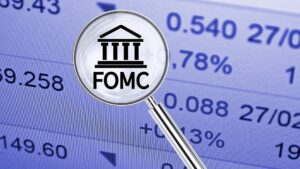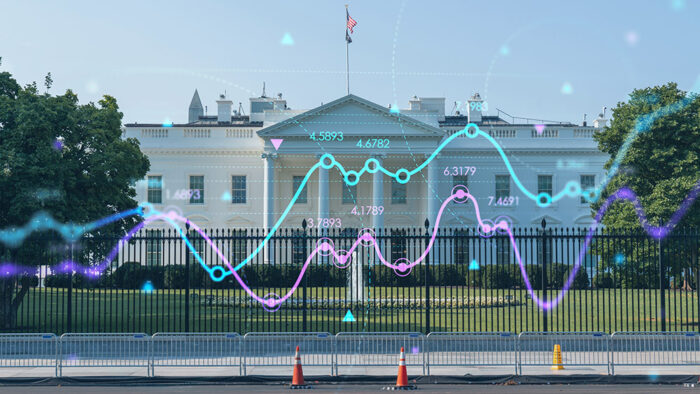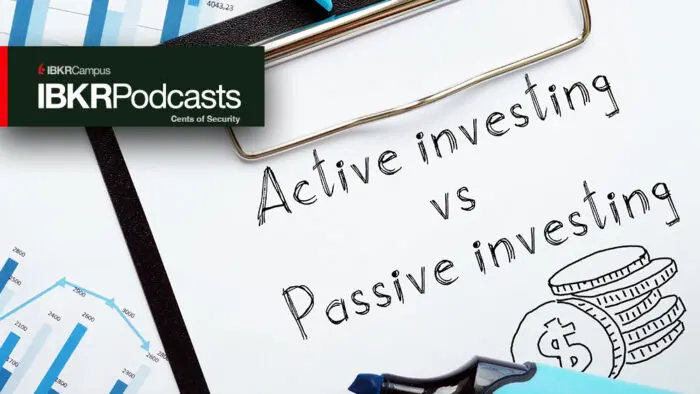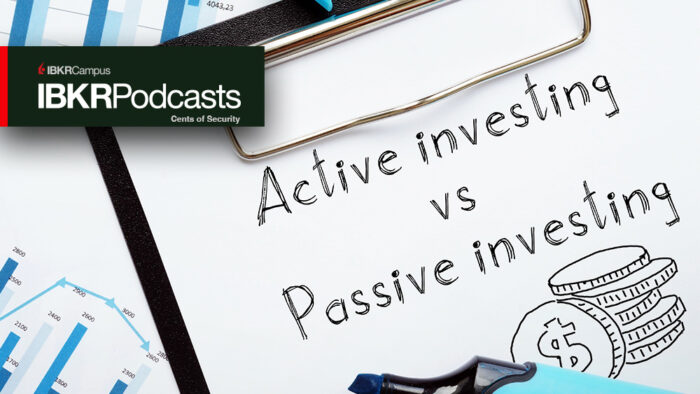Today we will learn who feels comfortable about going home with long positions ahead of a three-day weekend. It promises to be an interesting day for the traders who haven’t already skipped town ahead of Monday’s President’s Day holiday in the US (and Family Day in Canada). As I write this, the Ukraine situation remains unsettled, though oil price moves have been modest. Major US equity index futures attempted to rebound in the pre-market session after falling by over 2% yesterday, but that rally faded as the regular session opened. Oh, by the way, today is a monthly options expiration that could exacerbate volatility into a potentially thin-volume close. (And now I just learned that President Biden is planning a speech about Ukraine at 4PM Eastern today.)
Last week we wrote that the amount of volatility is inversely proportional to the amount of consensus about market valuations. If there were a perfect consensus on the valuation of a given item, then its price wouldn’t move. Conversely, if there were wildly divergent views about that item’s value, then its price would vary substantially. We certainly lack consensus about how to value the situation in Ukraine, and thus we have seen market volatility accompanying it.
When I was an options market maker, I had mixed opinions about the days that preceded long weekends. Putting aside my jealously at the bond traders who closed their markets early to beat the traffic, I realized that we could benefit from the lighter volume that tended to occur. Quite frankly, if liquidity is impaired because fewer people are trading, then you can get paid more for providing it. When volume is light, there is less competition on posted bids and offers, making it easier for market makers to capture the bid/ask spreads upon which they rely.
Liquidity is an underrated concern for too many investors. It is a very apt metaphor because, like water, it is fundamentally necessary and causes big problems when it is unavailable. Most of the time we can simply assume that liquidity is available in the marketplace, just as most of us can expect a reasonable flow of water when we open a faucet. Yet we get very anxious when we find ourselves unable to access either of them.
Now imagine that instead of having a dedicated water utility[i] ensuring the flows to your home, you were largely dependent upon a semi-organized group of water providers that are generally reliable but have broad discretion about how much they can offer at a given time or price. You would notice very quickly if those providers changed their flows and likely become somewhat nervous. That is certainly the case in equity and options markets. There are dedicated specialists and/or market makers, but the minimum size requirements for their quotes may be as small as 100 shares or 10 contracts, and their posted bid/ask spreads can be as wide as five dollars. There are minimum size commitments and maximum spread obligations, but they can be startlingly small and wide. We have also come to rely on what I like to call pseudo-market makers: high frequency trading firms and hedge funds that routinely post bids and offers in a wide range of products but have no obligation to do so. It is important to realize that the posted sizes and spreads can vary wildly during nervous markets.
We used to have a sign in our trading room, that said in effect:
When Things Get Crazy:
- Shrink sizes
- Widen Markets
- Raise Volatility
As a market maker we were obliged to post continuous two-sided markets throughout the trading day, but as I noted above, the standards could be quite minimal. When markets were operating normally, we were comfortable trading larger sizes on tighter spreads. When they were thin or volatile, those sizes shrunk and our spreads widened. And I am quite certain that we were not alone with that behavior.
Investors need to understand how the ramifications of changing volatility affect them. For starters, don’t rely on posted markets to be as deep or as tight in volatile markets as they are when times are calm. In extreme situations, it can be nearly impossible to access necessary liquidity. (IBKR founder and chair Thomas Peterffy relayed a scary reminiscence about this in a recent podcast.) It is imperative for traders large and small to consider whether they will be able to cover their risky positions if liquidity evaporates.
That said, traders can utilize decreased liquidity to their advantage. Why should market makers be the only ones to exploit wider markets and fear? If you find yourself in a position to provide, rather than consume, liquidity when it is scarce, then by all means do that. During the height of the Covid crisis, I mentioned that ordinary individuals could take advantage of thin liquidity by being disciplined and offered strategies to assist them. We are not seeing anything close to the panic that we did then, but the strategies remain the same.
Bottom line, it is generally much safer if you are able to provide liquidity than to need to consume it. Trade accordingly.
[i] Or, like me, a well with a pump
Disclosure: Interactive Brokers
The analysis in this material is provided for information only and is not and should not be construed as an offer to sell or the solicitation of an offer to buy any security. To the extent that this material discusses general market activity, industry or sector trends or other broad-based economic or political conditions, it should not be construed as research or investment advice. To the extent that it includes references to specific securities, commodities, currencies, or other instruments, those references do not constitute a recommendation by IBKR to buy, sell or hold such investments. This material does not and is not intended to take into account the particular financial conditions, investment objectives or requirements of individual customers. Before acting on this material, you should consider whether it is suitable for your particular circumstances and, as necessary, seek professional advice.
The views and opinions expressed herein are those of the author and do not necessarily reflect the views of Interactive Brokers, its affiliates, or its employees.
Disclosure: Hedge Funds
Hedge Funds are highly speculative, and investors may lose their entire investment.
Disclosure: Options Trading
Options involve risk and are not suitable for all investors. Multiple leg strategies, including spreads, will incur multiple commission charges. For more information read the "Characteristics and Risks of Standardized Options" also known as the options disclosure document (ODD) or visit ibkr.com/occ
Disclosure: Futures Trading
Futures are not suitable for all investors. The amount you may lose may be greater than your initial investment. Before trading futures, please read the CFTC Risk Disclosure. A copy and additional information are available at ibkr.com.






























